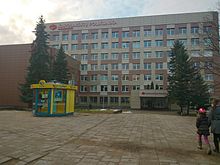

Next, you'll pick a time that fits your schedule. Every aspect of our facility is designed with your safety, comfort, and privacy in mind. You're probably wondering what fillers are made of. Learn more about Smooth fine lines New Westminster here However, you should avoid alcohol and strenuous exercise for the first 24-48 hours post-treatment. This quick turnaround means you can enhance your look almost in real time, perfect for upcoming events or just boosting your confidence.
Our skilled practitioners aren't just technicians; they're artists who blend science with aesthetics to enhance your natural beauty. The process was comfortable, the staff was supportive, and the outcome was beyond what they'd hoped for. Learn more about Botox and Filler New Westminster here. These effects can last three to four months, varying from person to person. What sets Manhas Health Co apart is their commitment to safety and precision.
You might be surprised to learn that Botox can also help with excessive sweating, known medically as hyperhidrosis, by blocking the nerves that trigger your sweat glands.
After your dermal filler procedure at Manhas Health Co, proper post-treatment care is crucial to optimize healing and maintain the results. From the initial comprehensive consultation process to tailored aftercare support, every step is designed with your utmost satisfaction in mind.
It is located on the banks of the Fraser River as it turns southwest towards its estuary, on the southwest side of the Burrard Peninsula, and roughly at the centre of the Greater Vancouver region.
By relaxing the bladder muscle, it reduces the urge to urinate frequently and urgently, improving your quality of life significantly. Transform your skin at Manhas Health Co and step into a world where age truly becomes just a number. Let these before and after snapshots inspire you and give you confidence in our ability to deliver remarkable results. Building on their reputation for proven results, Manhas Health Co. offers comprehensive consultations to tailor each botox and filler treatment to your unique needs.
By choosing to combine these treatments, you're not just addressing a single issue but rejuvenating your appearance comprehensively. It's all about getting to the heart of your aspirations, ensuring the proposed plan resonates deeply with you. Your own success story might just be the next to inspire others to take the step towards a more confident self.


With the expertise of our professionals, you'll receive a tailored treatment plan that aligns with your aesthetic goals, ensuring results that not only look natural but also last longer. Afterwards, results gradually appear over the next few days, peaking around two weeks. But that's not all; Botox can also assist in managing an overactive bladder, a condition that affects millions. Botulinum toxin F It's personalized care at its best.'These testimonials highlight the personalized approach we take with every client.
Beyond prioritizing your safety and comfort, Manhas Health Co. offers an extensive selection of aesthetic services tailored to meet your unique beauty goals. These stories aren't just feedback; they're a testament to the personalized care and expertise that Manhas Health Co. offers. They ensure the procedure is safe and effective, tailoring the treatment to your specific needs.
This relaxation reduces the appearance of existing wrinkles and prevents new ones from forming. Instead, Manhas Health Co. crafts a bespoke plan that evolves with you. You'll find stories of individuals who've regained their confidence, looking as vibrant on the outside as they feel inside.
They're dedicated to demystifying cosmetic treatments, making them accessible and understandable, so you can make informed decisions about your care. To grasp the essence of Manhas Health Co.'s offerings, it's crucial to understand what Botox and fillers actually are and how they can rejuvenate your appearance. The process is quick, with minimal downtime, meaning you can return to your daily activities almost immediately.
You'll also want to steer clear of heavy exercise for 24 hours. At Manhas Health Co, you're in expert hands. It's the perfect opportunity to ask all your questions and address any concerns.


Let's embark on this journey together, transforming your skin into a reflection of your inner youth and vitality. Botulin It's all part of our commitment to not just meet, but exceed your expectations for comfort, making each visit to Manhas Health Co. something you can look forward to. There's ample parking available nearby, so you can focus on your appointment rather than circling blocks looking for a spot. These activities can increase swelling and bruising at the injection sites.
The Manhas Health Co. team understands that each treatment is a step towards embracing your self-image, making you feel more aligned with how you see yourself and how you wish to be seen. Julia notes, 'The care doesn't stop once you leave the clinic. We believe in keeping you informed and prepared, so your journey with us is as smooth and comfortable as possible.
At Manhas Health Co, they prioritize safety and efficacy. Read more about Smooth fine lines New Westminster here Trust is a big part of the process, and our team's open, friendly communication style makes it easy to discuss your concerns and goals. Lastly, safety is a top concern.
Follow these tips, and you're set to enjoy stunning, lasting results from Manhas Health Co. Manhas Health Co. leverages the latest advancements in Botox and filler technology to deliver exceptional results tailored to your unique needs. Botox focuses on muscle activity, while fillers target volume loss.
You might experience slight bruising or swelling, but this typically fades quickly, allowing you to resume your day with no downtime. You're in good hands at Manhas Health Co., where quality isn't just a promise-it's a guarantee. Whether you're looking to smooth out fine lines, restore volume, or enhance facial contours, we'll tailor a plan just for you. It's also wise to avoid alcohol, blood thinners, and certain supplements like fish oil and vitamin E for a few days prior to your appointment to reduce the risk of bruising. Whether it's the application of numbing creams or the gentle, skilled hands of our practitioners, we're committed to minimizing discomfort and making your session as pleasant as possible.
Whether you're a first-time guest or a returning client, we've got something special for you. Botulinal toxin We'll assess your skin type, listen to your concerns, and discuss your aesthetic aspirations. Moreover, Manhas Health Co. prioritizes your health and safety above all. Lastly, the longevity of results might be on your mind.
In essence, skin rejuvenation offers a comprehensive approach to skin care. It's quick and easy, ensuring you're one step closer to experiencing the personalized care and expert treatments that have made us a trusted name in Smooth fine lines New Westminster. You're given a platform to express your desires and concerns, ensuring that your treatment aligns with your individual needs and expectations. This initial step is crucial in ensuring that the services you receive aren't only effective but also align perfectly with what you're looking for.
You'll see the difference in before-and-after photos presented during your consultation, where the transformations speak for themselves. Before any treatment, you'll sit down with a specialist who'll assess your facial structure and discuss your aesthetic goals. If you experience any discomfort, over-the-counter pain relief medication can be taken as advised by your specialist at Manhas Health Co. Botulinum toxin E It's our way of saying thank you for trusting us with your care and expanding our community.


A clinic (or outpatient clinic or ambulatory care clinic) is a health facility that is primarily focused on the care of outpatients. Clinics can be privately operated or publicly managed and funded. They typically cover the primary care needs of populations in local communities, in contrast to larger hospitals which offer more specialized treatments and admit inpatients for overnight stays.
Most commonly, the English word clinic refers to a general practice, run by one or more general practitioners offering small therapeutic treatments, but it can also mean a specialist clinic. Some clinics retain the name "clinic" even while growing into institutions as large as major hospitals or becoming associated with a hospital or medical school.

The word clinic derives from Ancient Greek κλίνειν klinein meaning to slope, lean or recline. Hence κλίνη klinē is a couch or bed and κλινικός klinikos is a physician who visits his patients in their beds.[1] In Latin, this became clīnicus.[2][3]
An early use of the word clinic was "one who receives baptism on a sick bed".[4]

Clinics are often associated with a general medical practice run by one or several general practitioners. Other types of clinics are run by the type of specialist associated with that type: physical therapy clinics by physiotherapists and psychology clinics by clinical psychologists, and so on for each health profession. (This can even hold true for certain services outside the medical field: for example, legal clinics are run by lawyers.)
Some clinics are operated in-house by employers, government organizations, or hospitals, and some clinical services are outsourced to private corporations which specialize in providing health services. In China, for example, owners of such clinics do not have formal medical education. There were 659,596 village clinics in China in 2011.[5]
Health care in India, China, Russia and Africa is provided to those regions' vast rural areas by mobile health clinics or roadside dispensaries, some of which integrate traditional medicine. In India these traditional clinics provide ayurvedic medicine and unani herbal medical practice. In each of these countries, traditional medicine tends to be a hereditary practice.

The function of clinics differs from country to country. For instance, a local general practice run by a single general practitioner provides primary health care and is usually run as a for-profit business by the owner, whereas a government-run specialist clinic may provide subsidized or specialized[dubious – discuss] health care.
Some clinics serve as a place for people with injuries or illnesses to be seen by a triage nurse or other health worker. In these clinics, the injury or illness may not be serious enough to require a visit to an emergency room (ER), but the person can be transferred to one if needed.
Treatment at these clinics is often less expensive than it would be at a casualty department. Also, unlike an ER these clinics are often not open on a 24/7/365 basis. They sometimes have access to diagnostic equipment such as X-ray machines, especially if the clinic is part of a larger facility. Doctors at such clinics can often refer patients to specialists if the need arises.[6]

Large outpatient clinics vary in size, but can be as large as hospitals.
Typical large outpatient clinics house general medical practitioners (GPs) such as doctors and nurses to provide ambulatory care and some acute care services but lack the major surgical and pre- and post-operative care facilities commonly associated with hospitals.

Besides GPs, if a clinic is a polyclinic, it can house outpatient departments of some medical specialties, such as gynecology, dermatology, ophthalmology, otolaryngology, neurology, pulmonology, cardiology, and endocrinology. In some university cities, polyclinics contain outpatient departments for the entire teaching hospital in one building.

Large outpatient clinics are a common type of healthcare facility in many countries, including France, Germany (long tradition), Switzerland, and most of the countries of Central and Eastern Europe (often using a mixed Soviet-German model), as well as in former Soviet republics such as Russia and Ukraine;[7] and in many countries across Asia and Africa.[8]
In Europe, especially in the Central and Eastern Europe, bigger outpatient health centers, commonly in cities and towns, are called policlinics (derived from the word polis, not from poly-).
Recent[when?] Russian governments have attempted to replace the policlinic model introduced during Soviet times with a more western model. However, this has failed.[9]
In the Czech Republic, many policlinics were privatized or leasehold and decentralized in the post-communist era: some of them are just lessors and coordinators of a healthcare provided by private doctor's offices in the policlinic building.[10]
India has also set up huge numbers of polyclinics for former defense personnel. The network envisages 426 polyclinics in 343 districts of the country which will benefit about 33 lakh (3.3 million) ex-servicemen residing in remote and far-flung areas.[11]
Policlinics are also the backbone of Cuba's primary care system and have been credited with a role in improving that nation's health indicators.[12]


Providing health services through mobile clinics provides accessible healthcare services to these remote areas that have yet to make their way in the politicized space. For example, mobile clinics have proved helpful in dealing with new settlement patterns in Costa Rica. Before foreign aid organizations or the state government became involved in healthcare, Costa Rica's people managed their own health maintenance and protection.[13] People relied on various socio-cultural adaptations and remedies to prevent illnesses, such as personal hygiene and settlement patterns.[13] When new settlements that sprang up along the coast became "artificial" communities, and due to lack of traditional home healing practices here, alternative methods such as mobile clinics had to be implemented in these communities for the protection and prevention of diseases.[13]
A study done in rural Namibia revealed the health changes of orphans, vulnerable children and non-vulnerable children (OVC) visiting a mobile clinic where health facilities are far from the remote villages.[14] Over 6 months, information on immunization status, diagnosis of anemia, skin and intestinal disorders, nutrition, dental disorders was collected and showed that visits to mobile clinics improved the overall health of children that visited regularly. It concluded that specified "planning of these programs in areas with similarly identified barriers may help correct the health disparities among Namibian OVC and could be a first step in improving child morbidity and mortality in difficult-to-reach rural areas."[14]

Food supplementation in the context of routine mobile clinic visits also shows to have improved the nutritional status of children, and it needs further exploration as a way to reduce childhood malnutrition in resource-scarce areas. A cross-sectional study focussed on comparing acute and chronic undernutrition rates prior to and after a food-supplementation program as an adjunct to routine health care for children of migrant workers residing in rural communities in the Dominican Republic.[15] Rates of chronic undernutrition decreased from 33% to 18% after the initiation of the food-supplementation program and shows that the community members attending the mobile clinics are not just passively receiving the information but are incorporating it and helping keep their children nourished.[15]

There are many different types of clinics providing outpatient services. Such clinics may be public (government-funded) or private medical practices.
cite book: |website= ignored (help)
This article needs additional citations for verification. (March 2012) |

A facial is a family of skin care treatments for the face, including steam, exfoliation (physical and chemical), extraction, creams, lotions, facial masks, peels, and massage. They are normally performed in beauty salons, but are also a common spa treatment. They are used for general skin health as well as for specific skin conditions. Types of facials include European facial,[1] LED light therapy facials, hydrafacials and mini-facials.
There are different kinds of masks (e.g., clay, cactus, cucumber) for different purposes: deep-cleansing, by penetrating the pores; healing acne scars or hyper-pigmentation; brightening, for a gradual illumination of the skin tone. Facial masks also help with anti-aging, acne, crows feet, under eye bags, sagging lids, dark circles, puffiness,[2] and more. Some masks are designed to dry or solidify on the face, almost like plaster; others just remain wet. The green face mask is very essential and benefited.
Masks are removed by either rinsing the face with water, wiping off with a damp cloth, or peeling off of the face. Duration for wearing a mask varies with the type of mask, and manufacturer's usage instructions. The time can range from a few minutes to overnight. Those with sensitive skin are advised to first test out the mask on a small portion of the skin, in order to check for any irritations. Some facial masks are not suited to frequent use. A glycolic mask should not be used more frequently than once a month to avoid the risk of burning the skin.
Masks can be found anywhere from drugstores to department stores and can vary in consistency and form. Setting masks include: clay, which is a thicker consistency, and will draw out impurities (and sometimes, natural oils, too) from the pores; a cream, which stays damp to hydrate the skin; sheet-style, in which a paper mask is dampened with liquid to tone and moisturize the skin; and lastly, a hybrid/clay and cream form that includes small beads for removing dead surface skin cells. Non-setting facial masks include warm oil and paraffin wax masks. These different forms are made to suit different skin types (e.g., oily or dry), and different skincare goals or needs (e.g., moisturizing, cleansing, exfoliating). Clay and mud masks suit oily and some "combination" skin types,[3] while cream-based masks tend to suit dry and sensitive skin types. There are also peel-off masks which are used to remove thin layers of dead skin cells and dirt.[4]
At Manhas Health Co, they prioritize your privacy during botox and filler treatments by implementing strict confidentiality policies, ensuring private consultation rooms, and maintaining discreet communication throughout your experience to keep your treatments confidential.
Yes, if you've got sensitive skin, botox or filler treatments can sometimes trigger allergic reactions. It's crucial to discuss your skin's history with your provider to ensure you're choosing the safest option for you.
You're wondering if Manhas Health Co. extends its services to those less fortunate through community outreach or pro bono work. They indeed offer programs to make aesthetic enhancements more accessible to underprivileged groups.